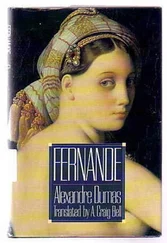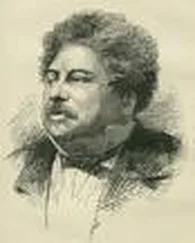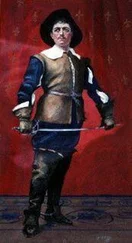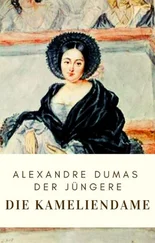Alexandre Dumas - Marguerite de Valois
Здесь есть возможность читать онлайн «Alexandre Dumas - Marguerite de Valois» — ознакомительный отрывок электронной книги совершенно бесплатно, а после прочтения отрывка купить полную версию. В некоторых случаях можно слушать аудио, скачать через торрент в формате fb2 и присутствует краткое содержание. Жанр: foreign_antique, foreign_prose, Историческая проза, на английском языке. Описание произведения, (предисловие) а так же отзывы посетителей доступны на портале библиотеки ЛибКат.
- Название:Marguerite de Valois
- Автор:
- Жанр:
- Год:неизвестен
- ISBN:нет данных
- Рейтинг книги:4 / 5. Голосов: 1
-
Избранное:Добавить в избранное
- Отзывы:
-
Ваша оценка:
- 80
- 1
- 2
- 3
- 4
- 5
Marguerite de Valois: краткое содержание, описание и аннотация
Предлагаем к чтению аннотацию, описание, краткое содержание или предисловие (зависит от того, что написал сам автор книги «Marguerite de Valois»). Если вы не нашли необходимую информацию о книге — напишите в комментариях, мы постараемся отыскать её.
Marguerite de Valois — читать онлайн ознакомительный отрывок
Ниже представлен текст книги, разбитый по страницам. Система сохранения места последней прочитанной страницы, позволяет с удобством читать онлайн бесплатно книгу «Marguerite de Valois», без необходимости каждый раз заново искать на чём Вы остановились. Поставьте закладку, и сможете в любой момент перейти на страницу, на которой закончили чтение.
Интервал:
Закладка:
"Oh," said he, as he followed the page, "she is not a mortal – she is a goddess, and as Vergilius Maro says: ' Et vera incessu patuit dea. '"
"Well?" asked the page.
"Here I am," replied La Mole, "excuse me, here I am."
The page, preceding La Mole, descended a story lower, opened one door, then another, and stopping,
"You are to wait here," said he.
La Mole entered the gallery, the door of which closed after him.
The gallery was vacant except for one gentleman, who was sauntering up and down, and seemed also waiting for some one.
The evening was by this time beginning to scatter monstrous shadows from the depths of the vaulted ceiling, and though the two gentlemen were not twenty paces apart, it was impossible for either to recognize the other's face.
La Mole drew nearer.
"By Heaven!" muttered he as soon as he was within a few feet of the other, "here is Monsieur le Comte de Coconnas again!"
At the sound of footsteps Coconnas had already turned, and was staring at La Mole with no less astonishment than the other showed.
"By Heaven!" cried he. "The devil take me but here is Monsieur de la Mole! What am I doing? Swearing in the King's palace? Well, never mind; it seems the King swears in a different way from mine, and even in churches. Here we are at last, then, in the Louvre!"
"Yes; I suppose Monsieur de Besme introduced you?"
"Oh, he is a charming German. Who brought you in?"
"M. de Mouy – I told you the Huguenots had some interest at court. Have you seen Monsieur de Guise?"
"No, not yet. Have you obtained your audience with the King of Navarre?"
"No, but I soon shall. I was brought here and told to wait."
"Ah, you will see there is some great supper under way and we shall be placed side by side. What a strange chance! For two hours fortune has joined us! But what is the matter? You seem ill at ease."
"I?" exclaimed La Mole, shivering, for in truth he was still dazzled by the vision which had been vouchsafed him. "Oh, no, but the place in which we are brings into my mind a throng of reflections."
"Philosophical ones, I suppose. Just the same as it is with me. When you came in I was just going over in my mind all my tutor's recommendations. Monsieur le Comte, are you acquainted with Plutarch?"
"Certainly I am!" exclaimed La Mole, smiling, "he is one of my favorite authors."
"Very well," Coconnas went on gravely, "this great man does not seem to me so far wrong when he compares the gifts of nature to brilliant but ephemeral flowers, while he regards virtue as a balsamic plant of imperishable perfume and sovereign efficacy for the healing of wounds."
"Do you know Greek, Monsieur de Coconnas?" said La Mole, gazing keenly at his companion.
"No, I do not; but my tutor did, and he strongly advised me when I should be at court to talk about virtue. 'That looks well,' he said. So I assure you I am well fortified with it. By the way, are you hungry?"
"No."
"And yet you seemed anxious to taste the broiled fowl of La Belle Étoile . As for me, I am dying of starvation!"
"Well, Monsieur de Coconnas, here is a fine chance for you to make use of your arguments on virtue and to put your admiration for Plutarch to the proof, for that great writer says somewhere: 'It is good to accustom the soul to pain and the stomach to hunger' – ' Prepon esti tên men psvchên odunê, ton de gastéra semó askeïn. '"
"Ah, indeed! So you know Greek?" exclaimed Coconnas in surprise.
"Faith, yes," replied La Mole, "my tutor taught me."
"By Heaven! count, your fortune is made if that is so; you will compose poetry with Charles IX. and you will talk Greek with Queen Marguerite!"
"Not to reckon that I can still talk Gascon with the King of Navarre!" added La Mole, laughing.
At this moment the door communicating with the King's apartment opened, a step was heard, and a shade was seen approaching in the darkness. This shade materialized into a body. This body belonged to Monsieur de Besme.
He scrutinized both gentlemen, so as to pick out the one he wanted, and then motioned Coconnas to follow him.
Coconnas waved his hand to La Mole.
De Besme conducted Coconnas to the end of the gallery, opened a door, and stood at the head of a staircase.
He looked cautiously round, then up and down.
"Monsir de Gogonnas," said he, "vere are you staying?"
"At La Belle Étoile , Rue de l'Arbre Sec."
"Goot, goot! dat is glose by. Go pack to your hodel gwick and to-nide" —
He looked around him again.
"Well, to-night?"
"Vell, gome here mit a vite gross in your hat. De bassvord is 'Gouise.' Hush! nod a vord."
"What time am I to come?"
"Ven you hear de dogsin."
"What's the dogsin?" asked Coconnas.
"Ja! de dogsin – pum! pum!"
"Oh! the tocsin!"
"Ja, vot elus tid I zay?"
"Good – I shall be here," said Coconnas.
And, saluting De Besme, he took his departure, asking himself:
"What the devil does he mean and why should the tocsin be rung? No matter! I persist in my opinion: Monsieur de Besme is a charming Tedesco – Why not wait for the Comte de la Mole? Ah faith, no! he will probably be invited to supper with the King of Navarre."
And Coconnas set forth for the Rue de l'Arbre Sec, where the sign of La Belle Étoile like a lodestone attracted him.
Meantime a gallery door which led to the King of Navarre's apartment opened, and a page approached Monsieur de la Mole.
"You are the Comte de la Mole?" said he.
"That is my name."
"Where do you lodge?"
"At La Belle Étoile , Rue de l'Arbre Sec."
"Good, that is close to the Louvre. Listen – his majesty the King of Navarre has desired me to inform you that he cannot at present receive you; perhaps he may send for you to-night; but if to-morrow morning you have received no word, come to the Louvre."
"But supposing the sentinel refuse me admission."
"True: the countersign is 'Navarre;' that word will open all doors to you."
"Thanks."
"Wait, my dear sir, I am ordered to escort you to the wicket gate for fear you should get lost in the Louvre."
"By the way, how about Coconnas?" said La Mole to himself as soon as he was fairly in the street. "Oh, he will remain to supper with the Duc de Guise."
But as soon as he entered Maître la Hurière's the first thing La Mole saw was Coconnas seated before a gigantic omelet.
"Oho!" cried Coconnas, laughing heartily, "I see you have no more dined with the King of Navarre than I have supped with the Duc de Guise."
"Faith, no."
"Are you hungry now?"
"I believe I am."
"In spite of Plutarch?"
"Count," said La Mole, laughing, "Plutarch says in another place: 'Let him that hath, share with him that hath not.' Are you willing for the love of Plutarch to share your omelet with me? Then while we eat we will converse on virtue!"
"Oh, faith, not on that subject," cried Coconnas. "It is all right when one is at the Louvre and there is danger of eavesdroppers and one's stomach is empty. Sit down and have something to eat with me."
"There, now I see that fate has decidedly made us inseparable. Are you going to sleep here?"
"I have not the least idea."
"Nor I either."
"At any rate, I know where I shall spend the night."
"Where?"
"Wherever you do: that is settled."
And both burst out laughing and then set to work to do honor to Maître la Hurière's omelet.
CHAPTER VI
THE DEBT PAID
Now if the reader is curious to know why Monsieur de la Mole was not received by the King of Navarre, why Monsieur de Coconnas was not permitted to see Monsieur de Guise, and lastly, why instead of eating pheasants, partridges, and venison at the Louvre, both supped at the hotel of the Belle Étoile on an omelet, he must kindly accompany us to the old palace of kings, and follow the queen, Marguerite of Navarre, whom La Mole had lost from sight at the entrance of the grand gallery.
Читать дальшеИнтервал:
Закладка:
Похожие книги на «Marguerite de Valois»
Представляем Вашему вниманию похожие книги на «Marguerite de Valois» списком для выбора. Мы отобрали схожую по названию и смыслу литературу в надежде предоставить читателям больше вариантов отыскать новые, интересные, ещё непрочитанные произведения.
Обсуждение, отзывы о книге «Marguerite de Valois» и просто собственные мнения читателей. Оставьте ваши комментарии, напишите, что Вы думаете о произведении, его смысле или главных героях. Укажите что конкретно понравилось, а что нет, и почему Вы так считаете.












